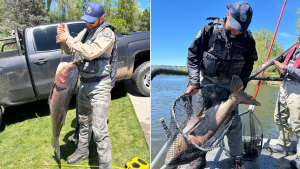True crime podcasts have become incredibly popular, with thousands of podcasts in the true crime category on platforms like Podchaser. A study from Pew Research Center found that true crime is the most common topic among top-ranked podcasts and 34% of U.S. adults who listen to podcasts regularly listen to true crime podcasts. The genre has grown in popularity over time, with people fascinated by criminology, psychology, and the American justice system. “The FOX True Crime Podcast w/ Emily Compagno” is one example of a podcast that has gained popularity, with Compagno being praised for her reporting and ability to make complex topics easily understandable. True crime podcasts have the potential to educate and bring about positive change.
Podcasts can have a significant impact on ongoing criminal cases, as seen in the cases of Adnan Masud Syed and Justin Ross Harris, whose stories were covered in popular podcasts like “Serial” and “Breakdown.” Listeners became emotionally involved in the stories and advocated for the accused individuals, leading to changes in the cases. True crime creators have a unique position as media that is assumed to be true, but is also framed as a narrative. Fans often feel they have a relationship with the hosts and get personally invested in the outcomes of cases they follow closely. The intimacy of podcasts as a form of media consumption, where the host speaks directly into the listener’s ears, enhances this feeling of involvement.
While true crime podcasts have the potential to educate and bring about positive change, there are ethical considerations to be taken into account when covering criminal cases. Coverage of famous killers and turning criminals into celebrities can have negative implications, especially for the families of victims. Creating ethical guidelines for true crime podcasting is important to ensure that the stories being told are respectful and serve a purpose beyond entertainment. Ethical codes for journalists and lawyers who create true crime podcasts exist, but there is no genre-wide ethical standard. Boling’s upcoming research aims to investigate the state of ethics in true crime podcasting and suggest a set of guidelines for creators to follow.
The popularity of true crime podcasts has led to an increase in fans conducting their own investigations and interacting with creators on internet forums. However, this level of involvement can sometimes lead to unethical behavior, such as publicizing personal information of people involved in ongoing cases. Podcasts like “Serial” have opened the door for less-than-ethical productions and created challenges in balancing the focus on perpetrators versus victims. Boling suggests that the educational potential of true crime should be a priority when choosing which cases to cover and how they are presented to the public. Ultimately, true crime has the potential to educate, heal, and bring closure to friends and family members of victims, but creators must carefully consider the motivations behind their work to ensure positive outcomes.















